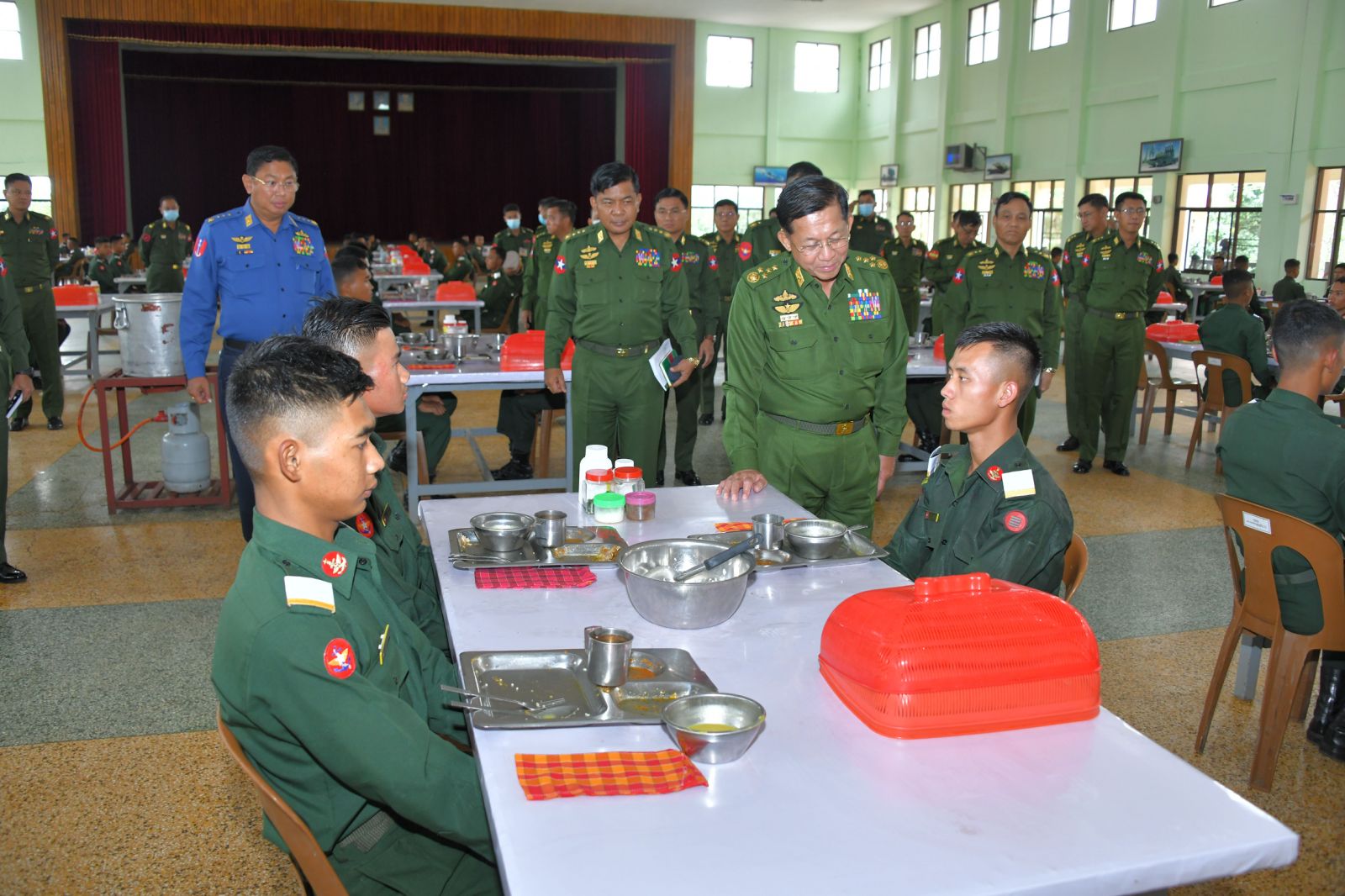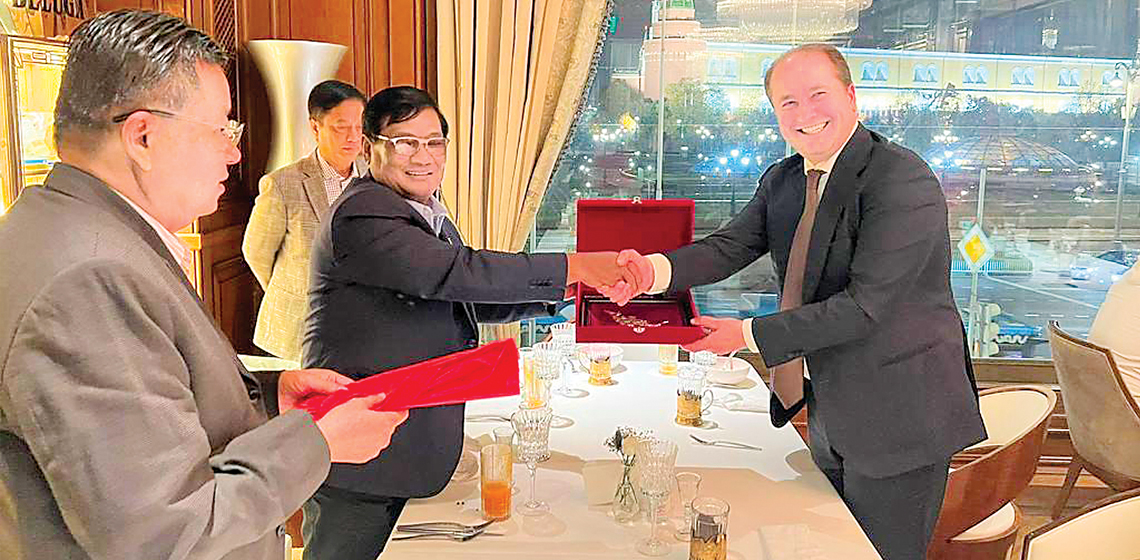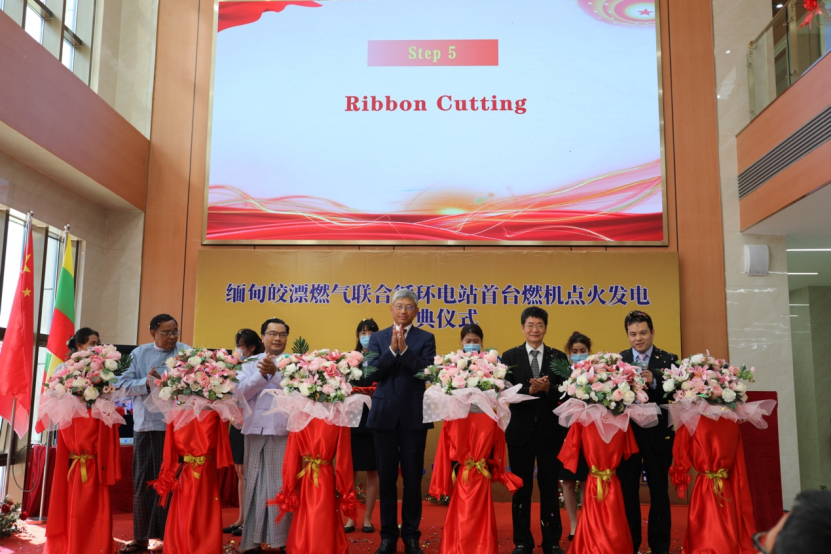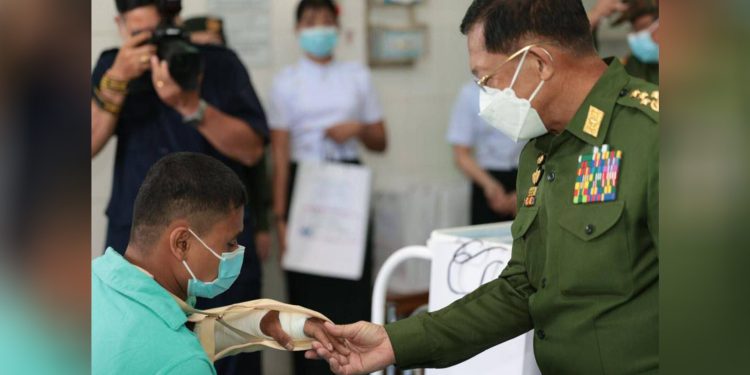Military chief cozies up to cadets

Junta chief Min Aung Hlaing and his generals tried to butter up future military officers on Wednesday, attending an event to help cadets of the 65th intake of the Defense Services Academy choose suitable corps.
At the academy in Pyin Oo Lwin, Mandalay, the junta boss had lunch with cadets before walking from one dining table to another, making chit-chat with them.
As Min Aung Hlaing gave the cadets encouraging pats and engaged in small talk, the generals accompanying him, including Navy chief Admiral Moe Aung and Air Force chief General Tun Aung, flashed very broad smiles.
Junta-controlled media have in fact been airing newscasts showing him sitting with cadets around dining tables for months. But this is the first time he has been shown engaging directly in friendly chit-chats with them.
The footage was followed by pictures of Min Aung Hlaing meeting wounded soldiers at a military hospital in Pyin Oo Lwin on Thursday. Contrary to his previous visits, this time he tried his best to appear as a caring commander by “seriously paying attention” to every patient he met, as if they were close family members, the pictures showed.
His sincerity is questionable, however, as his newfound empathy and relationship-building skills come at a time when his military is being seriously hit by desertions, casualties and a recruitment crisis.
It has been nearly a year since Min Aung Hlaing ordered his generals to display a benevolent, fatherly spirit toward their subordinates by hosting dinners for them. But given that these events were organized only after the regime suffered heavy casualties in daily clashes with resistance forces and ethnic armed organizations, as well as desertions, it is obvious that he has been forced to adopt various persuasive measures to keep his army fighting for him.
Russian investment sought for power sector

With the world’s leading energy firms having ditched their operations in Myanmar in response to the regime’s human rights violations, junta-appointed ministers flew to Russia and invited investment in the electricity and energy sectors in Myanmar.
Energy Minister U Myo Myint Oo and Electricity Minister U Thaung Han are in Moscow attending the Russian Energy Week International Forum. The two held talks with Russian-ASEAN Business Council chairman Ivan Polyakov on Tuesday and invited Russian companies to invest in oil exploration, oil refining, fertilizer production and petroleum product manufacturing.
During the forum, the two are also set to discuss the potential for investment in the energy and electricity sectors in Myanmar, according to junta media.
During his meeting with Russian President Vladimir Putin in September, junta chief Min Aung Hlaing invited international firms to engage in oil exploration in Myanmar. The regime also plans to establish a modular nuclear reactor project in the next few years with technical assistance from Russia.
We will have to wait and see how Russia will invest in Myanmar’s energy sector. Meanwhile, major energy companies including Total, Chevron, Woodside Petronas and Puma have left military-ruled Myanmar.
Beijing proves a loyal friend

With anti-China sentiment growing in Myanmar and the military regime getting closer to Russia following the coup, it appeared for a while that the relationship between the two neighbors was going wrong. Far from it.
In western Myanmar, the regime is pushing ahead with the China-backed Kyaukphyu Special Economic Zone (KPSEZ) and deep-sea port project in Rakhine. At the central committee meeting for Myanmar Special Economic Zones on Wednesday, deputy junta chief Soe Win, who chairs the committee, touted the potential benefits of the project as an important part of the China-Myanmar Economic Corridor (CMEC) and Beijing’s Belt and Road Initiative, and a true booster of bilateral relations.
On Monday, Chinese Ambassador to Myanmar Chen Hai opened a US$180-million, gas-fired 135-MW power plant in the KPSEZ. The ambassador hailed Kyaukphyu as crucial for the CMEC.
Beijing is a long-time ally of successive military regimes in Myanmar, with substantial economic interests in the Southeast Asian country. And together with Russia, it is defending the regime at the United Nations Security Council.
In June, China donated 2 million COVID-19 vaccine doses to Myanmar through the ASEAN special envoy. And in September, it donated fortified glass for a shrine at the Botatung Pagoda in Yangon and offered China-Myanmar friendship scholarships for the first time at the National University of Arts and Culture.
Japanese aid helps regime’s military effort

The Myanmar junta’s use of passenger vessels donated by the Japanese government to transport troops and military related materials to war-torn northern Rakhine State was exposed this week, prompting calls on the Japanese government to suspend non-humanitarian aid to Myanmar and sanction junta officials linked with serious human rights violations.
Citing the regime’s internal memos, Human Rights Watch said the junta used “Kisapanadi I” and “Kisapanadi III” for voyages to deploy “over 100 Tatmadaw [Myanmar military] troops, as well as their supplies and materials” along the Mayu River to Buthidaung in northern Rakhine, where the regime is fighting the Arakan Army (AA) ethnic armed group.
The vessels used were among three ships delivered by Japan between 2017 and 2019 under the 500-million-yen (US$3.5 million) Economic and Social Development plan “to improve water transport in Myanmar and contribute to the economic and social development of Myanmar by donating passenger ships for coastal transport in Rakhine State”.
A Japanese Foreign Ministry official responded that Tokyo was working to ensure appropriate use of facilities and equipment provided through Official Development Assistance programs.

















